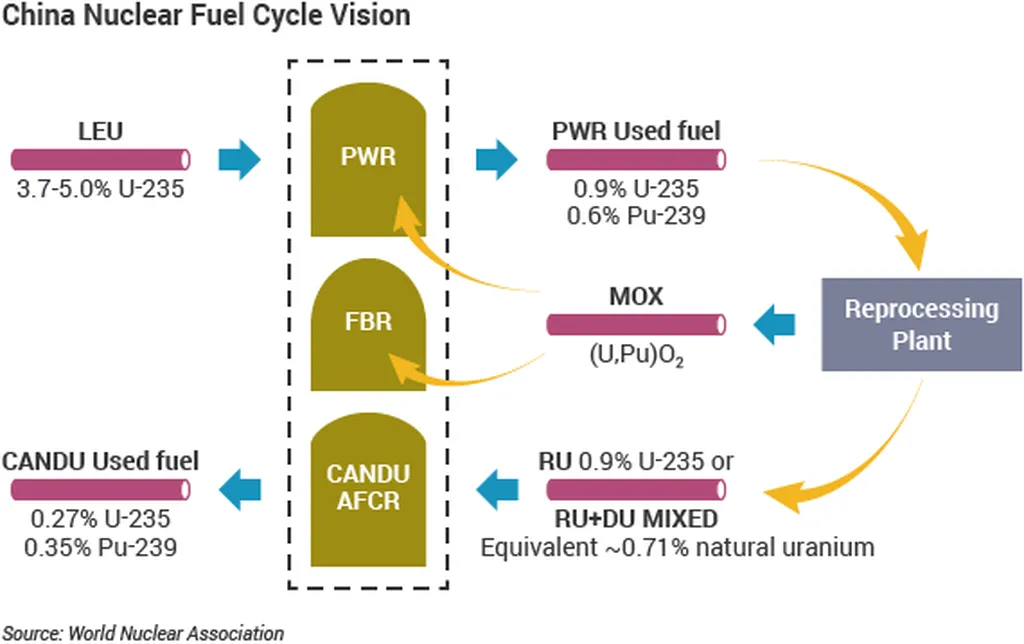In the heart of China’s ambitious nuclear energy strategy, a groundbreaking development has emerged from the 404 Company Limited, a subsidiary of the China National Nuclear Corporation (CNNC) in Lanzhou. A team of researchers, led by ZHANG Lixin, has successfully designed and tested a prototype fluidized bed reactor tailored for dry reprocessing of fast reactor spent fuel. This innovation addresses critical challenges in China’s three-step nuclear energy development plan, which includes pressurized water reactors, fast reactors, and fusion reactors, all underpinned by closed nuclear fuel cycle technology.
The team’s work, published in the journal *Nuclear Power Engineering*, focuses on overcoming the technical barriers posed by the intense radioactivity of high burnup spent fuel from fast reactors. Conventional aqueous reprocessing methods struggle with such materials, necessitating the development of dry reprocessing technologies. The researchers’ solution involves a novel fluidized bed reactor that employs a carrier-material collaborative fluidization mode, using alumina particles to ensure material stability during the fluorination-volatilization process.
“Our approach combines theoretical calculations with experimental validation to optimize the reactor’s design and operational parameters,” explained ZHANG Lixin. The team determined the operational gas velocity by integrating theoretical critical fluidization velocity with fluidization dynamics calculations, enabling structural optimization of the reactor. They also designed an integrated filtration-quenching device to ensure long-term reliability, featuring a bend-tube pre-distributor and a nickel ball-packed distribution plate.
The experimental results are promising. The reactor core maintained a stable temperature of 650°C under continuous operation, and the characteristic fluidization curves confirmed dynamic bed stability in high-temperature environments. During fluorination tests at 550°C with a fluorine gas flow of 20 L/min and 100 g of UF4 feed, the team achieved a remarkable 99.4% UF6 conversion rate within just two hours. These findings validate the feasibility of the fluidized fluorination technical route and provide a robust foundation for engineering applications.
The implications for the energy sector are significant. As the world seeks to balance energy demands with environmental concerns, the development of efficient and safe nuclear fuel cycles becomes increasingly important. This research offers a promising path forward for dry reprocessing technologies, which could enhance the sustainability and economic viability of nuclear energy.
Looking ahead, the team plans to focus on authentic spent fuel verification and long-term operational stability tests to accelerate the industrial implementation of fluorination-volatilization technology. “Our goal is to contribute to the advancement of closed nuclear fuel cycles and support the sustainable development of nuclear energy,” said ZHANG Lixin.
This breakthrough not only underscores China’s commitment to innovation in nuclear energy but also highlights the potential for international collaboration in addressing global energy challenges. As the world watches, the 404 Company Limited’s research could pave the way for a new era in nuclear fuel reprocessing, shaping the future of the energy sector.

